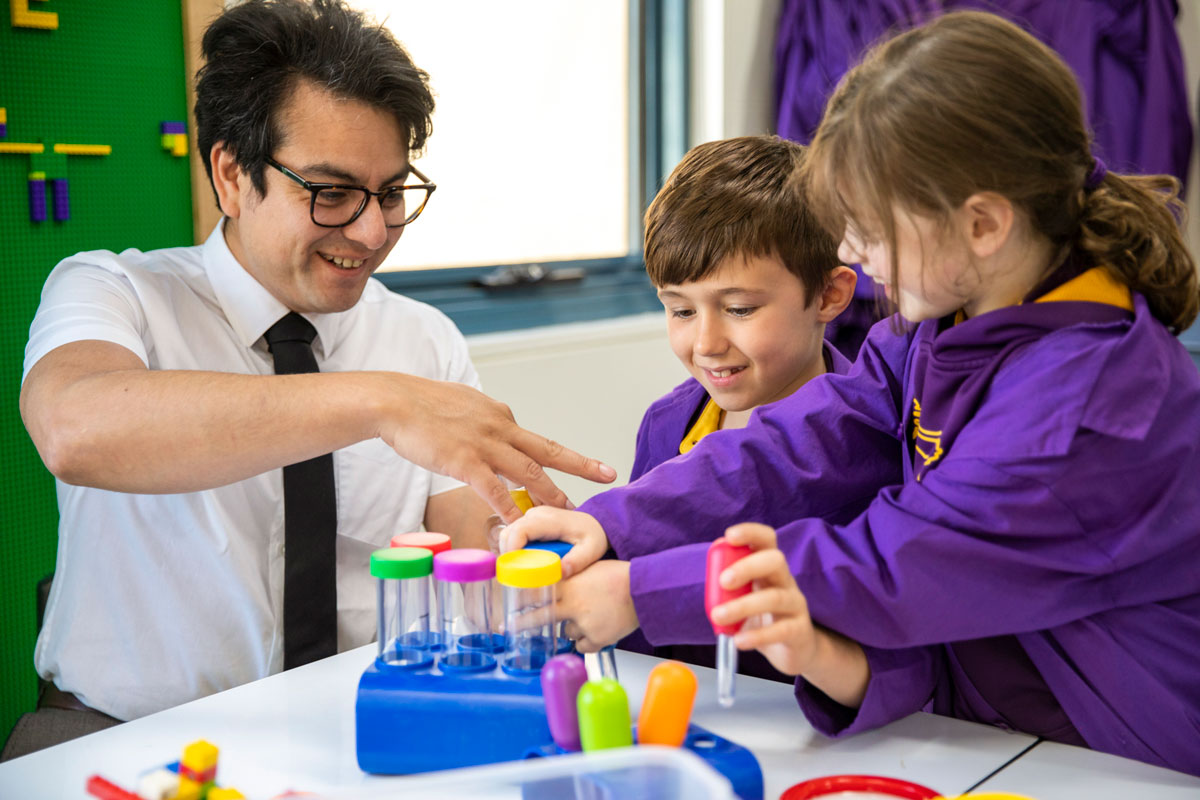
Learn more about the Junior School curriculum at Wesley and the concept of choice, ownership and ‘learner agency’ within Wesley’s IB Primary Years Program.
As an International Baccalaureate World School offering the Primary Years Program (PYP), we are part of a community of schools, educators and students who share a mission to empower young people with the values, knowledge and skills to create a better and more peaceful world.
The IB Primary Years Program (PYP) is the framework through which Wesley delivers the Australian curriculum and is studied from early years (3 and 4-year-old ECLC) to Year 6. It provides a framework that centres on transdisciplinary learning as the curriculum organiser for students to experience learning between, across and beyond traditional subject boundaries.
It provides for authentic inquiry-based, conceptually-driven learning and teaching that is engaging, significant, challenging and relevant. This takes form through the exploration of units of inquiry. Within those units of inquiry students are also developing approaches to learning, that is the skills of thinking, research, communication, being socially adept and how to self-manage.
Students are also given agency to become truly invested in their learning.
This key concept of learner agency is connected to a student’s belief in their ability to succeed. Our students are provided with voice, choice and ownership over elements of their learning, with the support of the learning community.
Learn more about the IB at Wesley College
Learning choice
In Junior School, students exercise their ownership over their own learning by choosing a topic they are passionate about for deeper study. ‘For my personalised project, I chose to learn more about girls footy and to interview an AFLW player. Kate Dempsey came and spoke at our International Women’s Day Breakfast so I asked my teacher for her contact details and emailed interview questions to her,’ Zara, Year 3 said.
Kasi, Year 4, wants to become ‘a volcano expert’. ‘I am interested in science and volcanoes,’ she said. ‘I want to find out why people choose to live near volcanoes and what the pros and cons are. That’s why my personalised project will be about.’
Learning spaces
Learning spaces play a fundamental role in the PYP as well. A safe, stimulating and inviting learning space promotes exploration, wonder, creativity, risk-taking and learning through play.
ECLC students Arthur and Rose both chose the Book Corner as their favourite learning space. ‘I chose the Book Corner because I like reading books and looking at the pictures with my [Year 4] buddy,’ Rose explains. For Arthur, the Book Corner holds his favourite book, A is for Australia.
Learner Profile
The IB learner profile, 10 attributes valued by IB World Schools, support students in developing international-mindedness.
The attributes represent a broad range of human capacities and responsibilities that encompass intellectual, personal, emotional and social growth. We see these lived out daily at different levels of sophistication as teachers and students strive to enrich their understandings of what it means to be inquirers, knowledgeable, thinkers, communicators, principled, open-minded, caring, risk-takers, balanced and reflective.
The learner profile is visible on posters around the campuses to help students identify and understand their own capacities. Which of the learner profile attributes do they think best describes themselves?
‘I am principled because I do whole body listening in class,’ Minty, Year 1 said. ‘I listen with my ears, eyes and body when the teacher is talking.’
‘Knowledgeable and caring best describes me because I usually like sharing my knowledge. The main thing I am good at is maths problems,’ Ollie, Year 2, said. ‘I am caring towards friends at recess and lunch.’
Action
Action is another key component of PYP learning. Students are encouraged to take action in response to the inquiries they’ve undertaken in class. It might be a change in attitude, a demonstration of increased responsibility or respect for others, or a commitment to leading or participating in advocacy groups.
For Elliot, Year 3, the Sharing the Planet inquiry (one of the themes explored within the PYP curriculum) led to a better understanding of peace and conflict. ‘We learnt about being assertive, passive and aggressive. Following that, I think we all started to be kinder towards each other. I don’t find it difficult to join groups and make friends now.’
How the World Works is another unit of inquiry that often resonates strongly with students. They are inspired to learn about ocean degradation and as Archie, Year 5, said, ‘it made me realise we really need to preserve our oceans.’
Personalised projects, units of inquiry, they all lead to a culminating project and Exhibition in Year 6 which enables students to demonstrate those inquiry skills and their learning and understanding of an issue or opportunity they have chosen to explore. This year students chose to explore issues such as racism and homophobia. ‘I am interested in exploring homophobia because people don’t recognise that it’s still a prevalent issue in our society,’ Jasper, Year 6 said.
Students are deeply engaged in their learning in this way. With their sense of learner agency and ability to guide and choose some of the topics they investigate, they find increasing relevance to their own lives and the world around them.
